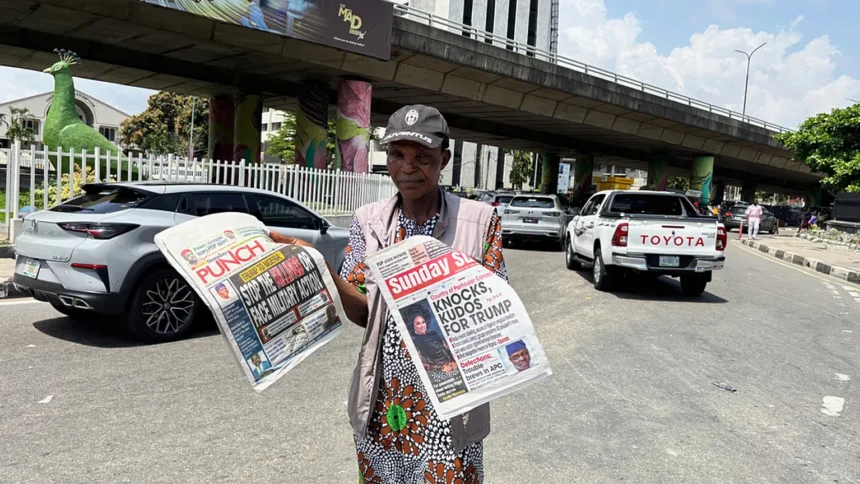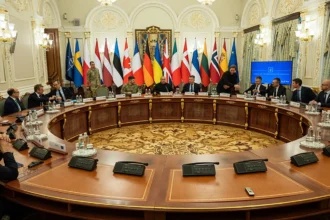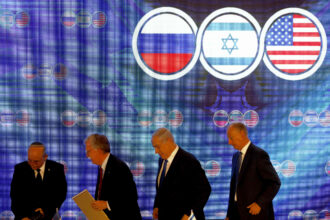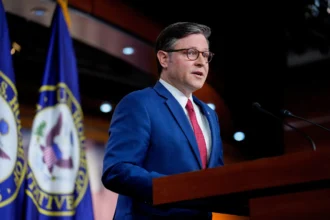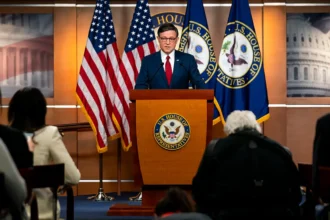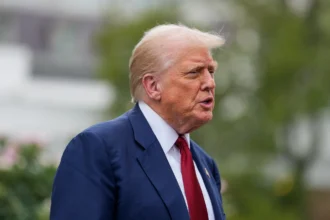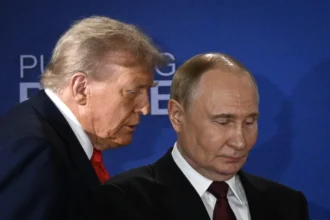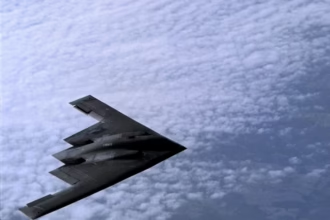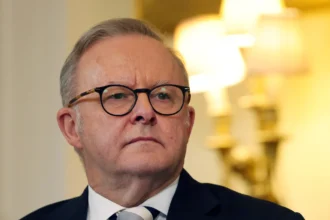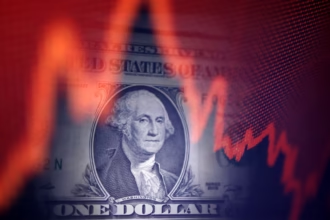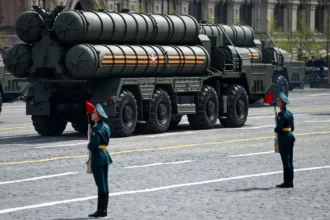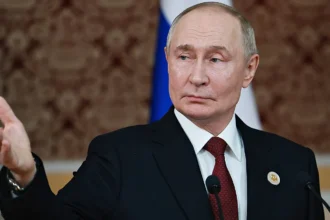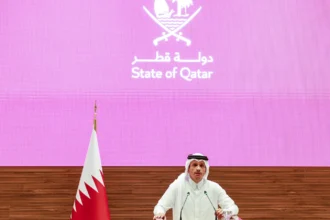U.S. President Donald Trump has issued a stern warning to Nigeria, threatening potential military action in response to what he described as “horrific abuses” and “targeted persecution” of Christians in the West African nation. The statement, delivered during a rally and amplified through social media, has reignited global debate over religious freedom, U.S. foreign policy in Africa, and Trump’s evolving political platform as he positions himself for a possible return to the White House.
A Fiery Accusation on the Global Stage
In his remarks, Trump accused the Nigerian government of “turning a blind eye” to systematic violence against Christians, particularly in the country’s Middle Belt and northern regions, where militant groups, bandits, and extremist factions have targeted rural Christian communities for years.
He said, “The world cannot stand by and watch innocent Christians being slaughtered. If the Nigerian government won’t act to protect its people, the United States will.”
Trump’s threat marks one of the most forceful foreign policy pronouncements from him since leaving office. It echoes his administration’s earlier focus on religious freedom and his vocal defense of Christian minorities worldwide—a cause that earned him significant support among U.S. evangelical voters.
While his comments were met with applause from supporters, they also drew swift criticism from Nigerian officials, who dismissed his remarks as “misinformed and inflammatory.”
Nigeria Pushes Back
Nigeria’s Ministry of Foreign Affairs responded within hours, calling Trump’s statement “deeply regrettable and inaccurate.” A spokesperson emphasized that Nigeria remains a multi-religious democracy committed to protecting the rights of all faiths and accused the former U.S. president of politicizing a complex security challenge.
“Violence in Nigeria is driven by multiple factors—economic, ethnic, and territorial—not solely by religion,” the ministry said in a statement. “Any suggestion that the government is complicit in religious persecution is entirely false.”
The Nigerian presidency also warned that such rhetoric could “jeopardize diplomatic relations” and “inflame tensions in fragile regions,” particularly at a time when the country is battling multiple insurgencies, from Boko Haram in the northeast to criminal militias in the northwest.
A Long-Running Humanitarian Crisis
The roots of the conflict in Nigeria’s north and Middle Belt run deep. For more than a decade, religious and ethnic violence has claimed tens of thousands of lives.
Boko Haram and its splinter faction, the Islamic State West Africa Province (ISWAP), have waged a brutal insurgency, targeting both Christian and Muslim civilians. Meanwhile, clashes between predominantly Muslim Fulani herders and Christian farming communities over land and resources have escalated amid worsening climate pressures.
While international observers, including the U.S. Commission on International Religious Freedom (USCIRF), have documented patterns of targeted violence against Christians, many analysts caution against framing the crisis purely along religious lines.
However, Trump’s latest comments have thrust the issue of faith-based persecution back into the spotlight, amplifying the narrative that Christians in Nigeria face existential threats—a theme that resonates strongly with American conservative audiences.
Echoes of Trump’s First Term
Trump’s warning to Nigeria carries echoes of his previous foreign policy moves that tied human rights to hard power. During his presidency, the Trump administration designated Nigeria a “country of particular concern” over religious freedom violations in 2020—a designation later lifted under President Joe Biden.
Trump also cultivated close ties with Christian advocacy organizations that pushed for stronger U.S. intervention in countries where Christian minorities faced persecution, including in Syria, Iraq, and China.
His latest rhetoric suggests a potential return to a foreign policy driven by religious solidarity, particularly aimed at reinforcing his evangelical base as he eyes another term in the White House.
“Trump is framing himself once again as the defender of global Christianity,” said one Washington-based analyst. “It’s part of a broader message that combines faith, strength, and nationalism—a potent mix for his campaign.”
Potential Diplomatic Fallout
If Trump were to return to office and act on his threat, U.S.-Nigeria relations could face severe strain. Nigeria is one of Africa’s largest democracies, a major oil producer, and a key security partner for the West in counterterrorism operations.
American military cooperation with Nigeria has included intelligence sharing, training, and arms sales, all aimed at combating Islamist insurgencies. A move toward punitive or military measures could undermine years of strategic partnership.
Experts warn that Trump’s comments—while perhaps politically motivated—could complicate ongoing U.S. diplomatic efforts in the region. “Nigeria’s security situation is fragile, and loose talk of intervention only emboldens extremists and damages trust,” said a senior African affairs expert.
Nonetheless, Trump’s remarks have found support among certain conservative lawmakers and Christian groups in the U.S., who have long accused Washington of ignoring the plight of Nigerian Christians.
A Broader Test of U.S.-Africa Policy
The controversy also highlights the growing complexity of America’s engagement with Africa amid shifting global alliances. Nigeria has deepened economic and defense ties with China, Russia, and Turkey in recent years—relationships that could strengthen if U.S. rhetoric turns confrontational.
Trump’s suggestion of unilateral U.S. military action risks pushing Nigeria further toward non-Western partners, particularly at a time when African nations are increasingly asserting independence in foreign policy decisions.
“This is not 1990,” noted a Lagos-based political scientist. “African nations have options now. Threats from Washington don’t carry the same weight they once did.”
Between Faith and Geopolitics
While Trump’s warning has drawn applause from religious freedom advocates, it has also reignited debate about whether Western powers are oversimplifying Africa’s internal conflicts through a religious lens.
The violence in Nigeria—driven by poverty, land scarcity, and the collapse of rural governance—defies simple categorization. Many Muslim communities in the north face the same security threats as their Christian counterparts, including kidnappings, terrorism, and displacement.
Still, for Trump and his supporters, the framing of a Christian struggle against persecution has powerful political resonance at home. It connects with his long-standing message of defending Western values and faith under siege—a narrative that continues to animate his movement.
Looking Ahead
As Nigeria continues to battle insurgencies and communal violence, the last thing it needs, many observers say, is heightened geopolitical tension. Yet Trump’s statement has ensured that Nigeria—and its internal conflicts—will feature more prominently in the global conversation heading into the next U.S. election cycle.
For now, the Nigerian government appears determined to de-escalate, emphasizing dialogue over confrontation. But the episode serves as a reminder of how easily domestic U.S. politics can ripple across continents—and how religion, geopolitics, and populism continue to intertwine in unpredictable ways.
Whether Trump’s warning becomes more than rhetoric remains to be seen. But his words have already sent a message that resonates far beyond Washington and Abuja: the next phase of U.S.-Africa relations could be defined as much by faith as by foreign policy.

